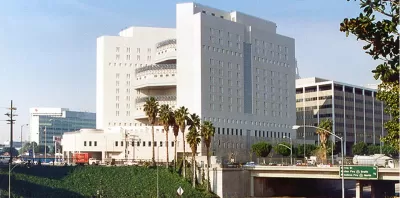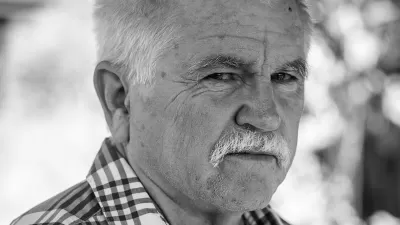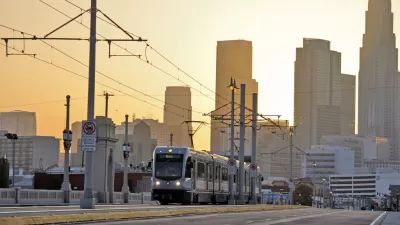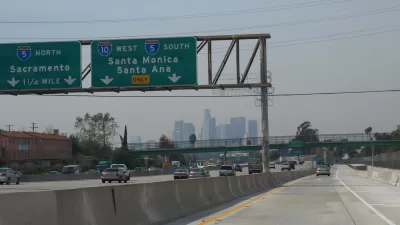The celebrated City of Quartz author speaks with the Los Angeles Times about activism, climate change, and his decision to stop cancer treatment.

Even while facing terminal cancer, iconic urban theorist and activist Mike Davis gave an expansive interview to Sam Dean of the Los Angeles Times, discussing everything from climate change to Bohemian Grove to death.
Davis is best known among urbanists for his 1990 book City of Quartz, a searing critique of corrupt Los Angeles institutions and carceral design and a prescient warning about the civil unrest that was to explode in the city just a few years later. “An astonishing run of more than a dozen books followed, oscillating between critiques and histories of the American West and sweeping historical analyses of how climate disaster, capitalism and colonialism have ground the global poor between their gears and set us up for future calamity (including global viral pandemics, predicted in 2005’s “The Monster at Our Door”).”
Dean describes Davis’ affable nature and generosity (“Our conversation lasted from midday until sunset”). Davis gives his opinion on climate change, fatalism, the LAPD, and the importance of organized social movements. For Davis, “the biggest single political problem in the United States right now has been the demoralization of tens of thousands, probably hundreds of thousands of young activists. Part of the problem is the lack of organizational structure, particularly of organizations of organizers.”
Davis concludes without wanting to leave any profound words about his own impending death. “I’m just an ordinary person going through what every ordinary person eventually goes through under circumstances that aren’t especially tragic at all.” For Davis, “ It’s been more fun just watching Golden State play or Scandinavian mysteries or reading books, above all relaxing and hanging out with the family.”
FULL STORY: Mike Davis is still a damn good storyteller

Alabama: Trump Terminates Settlements for Black Communities Harmed By Raw Sewage
Trump deemed the landmark civil rights agreement “illegal DEI and environmental justice policy.”

Study: Maui’s Plan to Convert Vacation Rentals to Long-Term Housing Could Cause Nearly $1 Billion Economic Loss
The plan would reduce visitor accommodation by 25% resulting in 1,900 jobs lost.

Planetizen Federal Action Tracker
A weekly monitor of how Trump’s orders and actions are impacting planners and planning in America.

Waymo Gets Permission to Map SF’s Market Street
If allowed to operate on the traffic-restricted street, Waymo’s autonomous taxis would have a leg up over ride-hailing competitors — and counter the city’s efforts to grow bike and pedestrian on the thoroughfare.

Parklet Symposium Highlights the Success of Shared Spaces
Parklets got a boost during the Covid-19 pandemic, when the concept was translated to outdoor dining programs that offered restaurants a lifeline during the shutdown.

Federal Homelessness Agency Places Entire Staff on Leave
The U.S. Interagency Council on Homelessness is the only federal agency dedicated to preventing and ending homelessness.
Urban Design for Planners 1: Software Tools
This six-course series explores essential urban design concepts using open source software and equips planners with the tools they need to participate fully in the urban design process.
Planning for Universal Design
Learn the tools for implementing Universal Design in planning regulations.
Caltrans
Smith Gee Studio
Institute for Housing and Urban Development Studies (IHS)
City of Grandview
Harvard GSD Executive Education
Toledo-Lucas County Plan Commissions
Salt Lake City
NYU Wagner Graduate School of Public Service





























